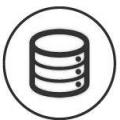In this workshop, I use the Trade and Quote (TAQ) and Center for Research in Securities Prices (CRSP) data to examine U.S. financial markets. TAQ data contain intra day pricing information, and CRSP data provide daily pricing information. These files are usually analyzed in SAS. The plan of the workshop is to use them as a vehicle for teaching effective SAS programming.
Sign up for our weekly newsletter!
This is an archive of our past training offerings. We are looking to include workshops on topics not yet covered here. Is there something not currently on the list? Send us a proposal.
This INTENSIVE offers an introduction to a range of Text Analysis approaches, including dictionary methods, classification and machine learning, TF-IDF, clustering, and topic modeling. Tutorials are performed in R with RStudio.
Day 1: Introduction to text analysis approaches. What is automated text analysis? What questions can we ask and answer using these approaches?
This 2-hour workshop will provide a comprehensive overview of graphics in R. Participants will learn how to construct, customize, and export a variety of plot types using base graphics, lattice, and ggplot2. Previous experience with R is assumed.
This 2-hour workshop is geared towards applied researchers looking to use R for basic data analysis. It will introduce participants to the basics of data manipulation (notably using plyr and reshape2), regression, and regression diagnostics. The workshop will also briefly cover packages for data visualization (including lattice and ggplot2), matching, and data imputation.
The workshop will cover (in a teaching computer lab environment, using the General Social Survey as a common dataset): Getting data into Stata, -Stata specific tools and resources (do files, logs, help files, etc) -Coding and cleaning data (making new variables from old variables; labeling variables and values, etc) -Collapsing data -Descriptive statistics (tables and graphs) -Crosstabs -Correl
This workshop assumes a basic familiarity with R, specifically with respect to adding columns and subsetting dataframes. In this workshop we will cover the following topics: 1) summarizing patterns of data in dataframes; 2) basic plotting of data; and 3) techniques for how to create professional-looking plots to illustrate data patterns.
Get an orientation to the basics of working with social science data in python. We'll start from the ground up, from the basics of naming variables, making decisions, and repeating operations to making informative (or at least fun) pictures on your screen.
Watch this space for more information as the course develops.
This 2-hour workshop introduces the basics of data analysis in R, a powerful and free open-source programming environment. You will learn the core properties of the R programming language through step-by-step examples and scaffolded exercises with data provided by the instructor.
An intro to the basics that instructors often assume you know, but that you probably never had good instruction on! After this course, you should be able to more easily start learning to program (e.g., in R or python), follow instructions and documentation online (e.g. StackExchange), and communicate better with your collaborators who are programming.
This workshop assumes a basic familiarity with R, specifically with respect to adding columns and subsetting dataframes. In this workshop we will cover the following topics: 1) summarizing patterns of data in dataframes; 2) basic plotting of data; and 3) techniques for how to create professional-looking plots to illustrate data patterns.
The Berkeley Common Environment (BCE) is a standardized virtual machine (VM). You and your students can run it on your laptops, or in the cloud (currently the Amazon cloud). What's the value of standardization? If you get your code running on your copy of BCE, then it'll run for your students too!
This very basic STATA workshop will cover:
This workshop covers how to organize and analyze qualitative data in Atlas.TI. Both researchers new to qualitative methods and experienced qualitative researchers are encouraged to attend. The training will outline the key decisions the researcher must make about the unit of analysis, their coding approach, and what data is most relevant, as well as review the use of folders, codes, attribute
This workshop will introduce address geocoding - the process of determining the geographic location of a street address - using ArcGIS. The first part of this workshop will be an introduction to the process of geocoding and the various online and desktop tools available for geocoding.
This Intermediate Stata wokshop is designed to build upon knowledge learned in the Very Basic Stata workshop.
Students will receive a quick (30 minute) review of concepts and procedures introduced in the Very Basic workshop. Then, Garret (the Instructor) will introduce commands associated with:
Join the Qualitative Data Analysis Working Group (QDAWG) for a conversation with Dr. Nikki Jones about ethnographic research.
Dr. Jones' talk will be followed by a reception.
Note QDAWG time change!
This workshop will explain how to recruit, manage, and mentor undergraduate research teams, and even how to decide whether or not your project would benefit from undergraduate research assistants.
The D-Lab is hosting an orientation where graduate students interested in working at the D-Lab can come and learn more about the D-Lab, open positions, and the D-Lab Culture. Join past and current D-Lab grad students for 30 minutes of introduction and 30 minutes of Q&A.
Join the Qualitative Data Analysis Working Group (QDAWG) for a conversation with Dr. Cybelle Fox about analyzing archival documents.
This is an overview presentation of using web scraping for urban data. How does web scraping work and what are the issues surrounding it? I will present on some of my prior work creating, customizing, and running a scraper. Finally, I will demonstrate how to visualize the scraped data. This is a presentation talk of web scraping and does not require attendees to bring a computer.







